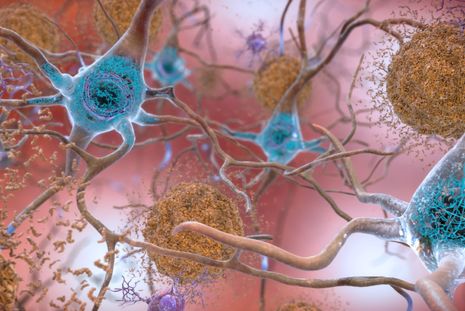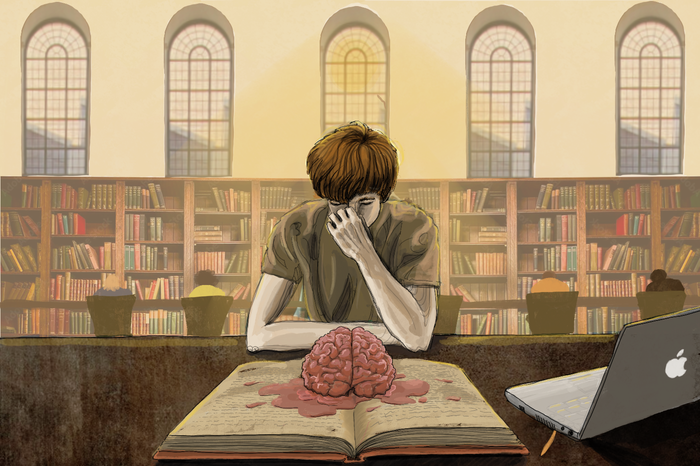Why ‘repressed’ memories might actually be false memories
Kalina Poydovska discusses how people can confidently remember events that never happened to them

Breathe in, breathe out. Feel your body relaxing and the tension flowing out of you. As you count down from ten, imagine yourself descending a winding staircase. The corridor is lined with pictures of people and places from your past. As you walk, you encounter a room. It is hidden deep within your mind — but you always knew it existed.
Could you be ‘repressing’ memories of childhood trauma? Who knows, until you try hypnotherapy. The idea is that you enter a trance-like, uninhibited state, which allows memories to rise to the surface. Books such as The Perks of Being a Wallflower popularise the notion that repressed memories can resurface later in life. The 1990s saw a repressed memory ‘epidemic’, with spontaneous recollections popping up left and right. However, science suggests that these memories may be false, rather than repressed.
“The idea originates from Freud’s seduction theory, which he later abandoned”
The idea of ‘repressed memory’ originates from Freud’s ‘seduction theory’, which he later abandoned. According to Freud, the mind has two components: the conscious and the unconscious. He argued that highly traumatic memories are conveniently locked away in the unconscious mind, to prevent them from ‘wreaking havoc’. However, this storage is not airtight and the repressed memories can infiltrate dreams and behaviours. Seduction theory posited that neurosis and hysteria result from repressed memories of sexual abuse creeping in. But when Freud realised that many of his patients displayed these symptoms without evidence of having undergone such trauma, he discarded seduction theory in favour of the Oedipus complex, arguing that internal fantasies and fears, rather than memories of concrete events, cause neurosis.
Attempting to ‘uncover’ repressed memories using hypnotherapy can be harmful, to both patients and those around them. Subjects are coaxed into relaxed, receptive states. One small suggestion on the part of the therapist can accidentally trigger the confabulation of false memories. Patients can become convinced that they underwent childhood trauma, experiencing lucid mental images of events that never occurred. In this way, therapists may inadvertently inflict new psychological damage.
“George Franklin spent six years in prison before he was pardoned”
Further, using repressed memory evidence in court brings the risk of wrongful convictions. In 1989, Eileen Franklin ‘suddenly remembered’ witnessing her father murder her best friend 20 years earlier. There was no physical evidence to corroborate her claim, yet George Franklin spent six years in prison before he was pardoned. Eileen’s reliability was doubted only after she made another accusation, which was firmly refuted by DNA evidence and a solid alibi.
Based on our current understanding of memory, neuroscientific evidence for real repressed memories is limited. Different aspects of our experiences (what we see, hear, and feel) are represented by different groups of neurons. Your exam pencil case may activate neurons related to stationery, stress, studying, and the sound of scribbling. As we form memories of events, the synapses between such groups of neurons strengthen. The result is a ‘memory trace’: a network of neurons representing a particular memory.
When the neurons in this memory trace are triggered (perhaps by relevant sensations, objects, or contexts), you remember the event. When you see the pencil case, all of its associations come flooding in. Notably, scientists have found no special physiological basis for hiding ‘repressed’ memories (as jarring as the exam period may have been). If a memory is not accessible, perhaps it was not processed or stored properly in the first place. For example, fight-or-flight responses in stressful situations can suppress memory-forming mechanisms. Alcohol does the same — those memories really are gone.
The concept of repressed memories also lacks credibility when viewed through a psychological lens. Traumatic events entail heightened emotions, suggesting that memories should become more vivid, rather than being forgotten. Post-traumatic stress disorder (PTSD) patients endure repeated flashbacks of their negative experiences. Impaired or fragmented recall is a symptom of PTSD, but this is different from repressed memories that can supposedly be elicited under the ‘right’ conditions.
Your brain’s memory retrieval mechanisms may be to blame for the creation of false memories. Evidence suggests that when you recall an experience, the memory becomes unstable and malleable. The neural basis of this memory is temporarily disrupted and it becomes susceptible to editing. New details can be inserted. It’s possible that childhood memories get distorted in this way to give the illusion of repressed memory.
Hypnotherapy remains controversial and many classify it as pseudoscience. Those who still practice it have fortunately shifted their focus onto goals like promoting positive thought patterns, reducing stress, and breaking bad habits — rather than meddling with memories. Memory should be treated with extreme caution, considering how unstable and pliable it is.
So, the ‘repressed memory’ is almost certainly a false phenomenon, and, it may be for the best: that horrendous supervision is blanked from (or burned into) your memory forever.
 News / Colleges charge different rents for the same Castle Street accommodation2 March 2026
News / Colleges charge different rents for the same Castle Street accommodation2 March 2026 News / News in Brief: waterworks, wine woes, and workplace wins 1 March 2026
News / News in Brief: waterworks, wine woes, and workplace wins 1 March 2026 News / Climate activists protest for ‘ethical careers policy’1 March 2026
News / Climate activists protest for ‘ethical careers policy’1 March 2026 News / Private school teacher who lied about Cambridge degree barred from teaching27 February 2026
News / Private school teacher who lied about Cambridge degree barred from teaching27 February 2026 News / Angela Merkel among Cambridge honorary degree nominees27 February 2026
News / Angela Merkel among Cambridge honorary degree nominees27 February 2026









